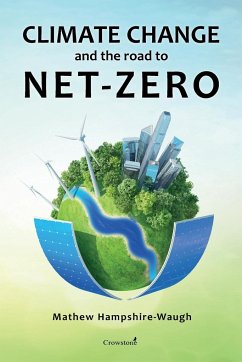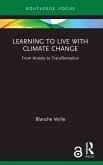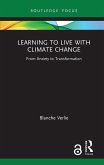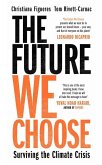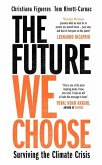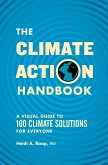CLIMATE CHANGE and the road to NET-ZERO is a story of how humanity has broken free from the shackles of poverty, suffering, and war and for the first time in human history grown both population and prosperity. It's also a story of how a single species has reconfigured the natural world, repurposed the Earth's resources, and begun to re-engineer the climate. The book uses these conflicting narratives to explore the science, economics, technology, and politics of climate change. NET-ZERO blows away the entrenched idea that solving global warming requires a trade-off between the economy and environment, present and future generations, or rich and poor, and reveals why a twenty-year transition to a zero carbon system is a win-win solution for all on planet Earth. From the Author "I wrote Climate Change and the road to Net-Zero to provide a generalist reader with a clear, comprehensive, and objective take on the issues surrounding climate change and air pollution. The book walks the reader through a history of energy, innovation, and the rise of human civilisation; how scientists have come to understand our past climate and can now forecast future change; the problems economists encounter as they attempt to piece together the potential monetary and social damages from climate inaction; and a technology agnostic assessment of potential climate change solutions (from climate-engineering to mitigation) including their costs, risks, and limitations. The book demonstrates why sustainable technologies such as wind, solar, and batteries get cheaper with scale of production, not time, and why a rapid transition to a fully-fledged net-zero system will end up significantly cheaper than remaining bound to fossil fuels, whilst also avoiding the worst impacts of climate change, and preventing nearly eight million premature deaths each year from air pollution. I hope Climate Change and the road to Net-Zero delivers an understanding of humanity's relationship with Earth that is as intriguing as Simon Lewis and Mark Maslin's The Human Planet, or Yuval Noah Harari's Sapiens. I very much hope too that the book conveys the passion and call to action of David Wallace-Well's The Uninhabitable Earth, coupled with the sober economic analysis of The Climate Casino by William Nordhaus or Capital in the 21st century by Thomas Piketty, and that it provides the technical rigour of Sustainable Energy Without The Hot Air by David MacKay, the rationality of Hans Rosling's Factfulness, and the eternal hope of The Future We Choose by Christiana Figueres and Tom Rivett-Carnac. I believe net-zero will be cheaper, cleaner, safer, more reliable, more sustainable, and will create more employment than if we remain bound to fossil fuels. After reading the book, I hope you will agree." Mathew Hampshire-Waugh, Author.
Hinweis: Dieser Artikel kann nur an eine deutsche Lieferadresse ausgeliefert werden.
Hinweis: Dieser Artikel kann nur an eine deutsche Lieferadresse ausgeliefert werden.

